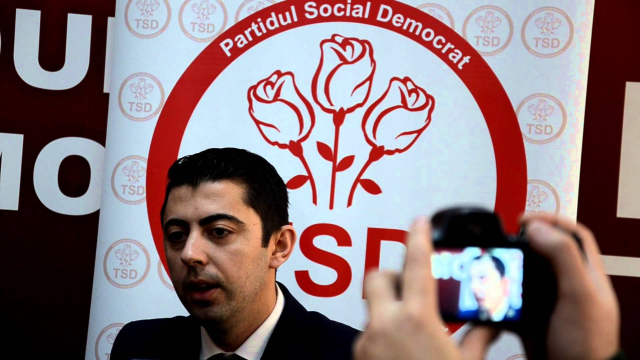The Parliament and Justice
On Monday, the Parliament in Bucharest saw another episode in the ongoing conflict between politicians and magistrates in Bucharest. The members of the lower chamber of Parliament refused to approve the arrest of one of their colleagues, though the Minister of Justice himself had asked them not to obstruct the investigation.

Bogdan Matei, 18.02.2014, 13:33
On Monday, the Parliament in Bucharest saw another episode in the ongoing conflict between politicians and magistrates in Bucharest. The members of the lower chamber of Parliament refused to approve the arrest of one of their colleagues, though the Minister of Justice himself had asked them not to obstruct the investigation.
Only 105 of the MPs present voted in favor of lifting immunity for Social Democrat Vlad Cosma, while 222 of them, voted against. The accused warned his colleagues that, by voting to lift his immunity, they could be next in line in what he has termed a ‘politician hunt’. Young deputy Cosma and his father stand accused of receiving about 4.4 million lei in kickbacks, the equivalent of roughly one million Euros, in exchange for preferential contracts with inflated bills. Unprotected by immunity, the father has already been arrested, but the deputy is walking free due to his colleagues’ solidarity.
The secret vote, announced by the heads of parliamentary groups, is further proof of the rising tension within the government coalition. Just like the Liberal Democratic Party and the Dan Diaconescu Party of the People, the Liberals, who are junior coalition partners, agreed with lifting Cosma’s immunity.
His Social Democrat colleagues did not reveal how they would vote, but their option is clear from the overwhelming majority in the vote, reflecting their comfortable majority in Parliament itself. Aware of the bad image this vote generates, some of the members of the Judicial Committee of the Chamber of Deputies claimed that an MP can claim immunity only for voting and for political statements, and that, irrespective of the vote in Parliament, the investigation goes on, and justice has not been obstructed.
It remains to be seen how convincing this explanation will sound for domestic public opinion and Romania’s foreign partners. A month ago, a European Commission report on the fight against corruption in Romania mentioned concerns on the independence of the judiciary and on the swift changes in the relevant legislation, with a lack of transparency. As for Romanian citizens, their perception is indicated by every opinion poll, year by year, showing that Parliament benefits from the lowest rate of public confidence of all state institutions.






























